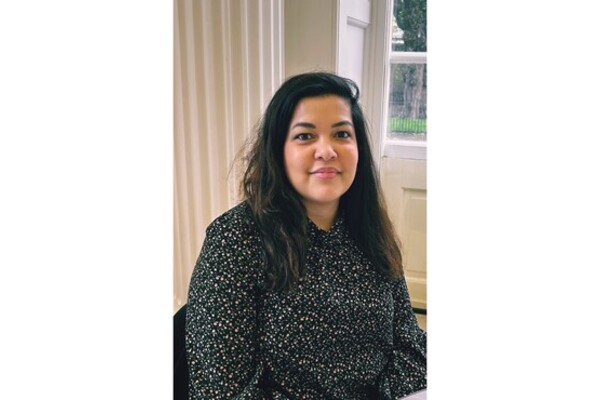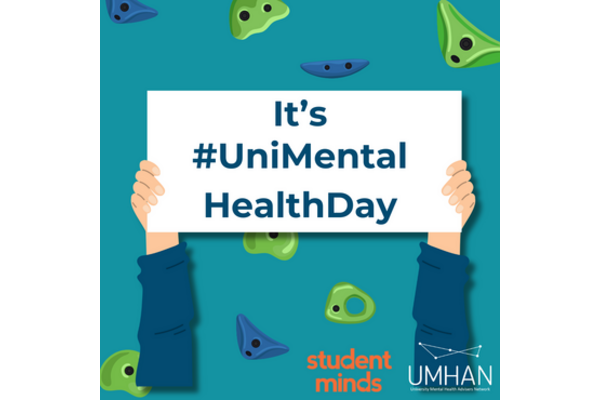Today we are sharing the story of Alex.
What was difficult about disclosing?
I had experienced an array of mental health issues for over a decade before finishing my undergraduate degree. These were mainly depression, anxiety and psychosis but other factors certainly lead to me experiencing low moods. I had been so used to dealing with issues I had on my own, so for me opening up about how I was feeling when I was at my worst was such a difficult thing to do. I didn’t have lots of people growing up who I felt comfortable to talk to about mental health. But there was people there I could talk to and I know that. I kept quiet and let things build up to a point that I just didn’t want to carry on anymore, which consequently resulted me being in hospital after attempting to take my own life. This was when I just had to tell someone I was struggling. However, building up the motivation and courage- honestly it was one of the most difficult things I had to do. Telling people that deep down I loved that I was just not wanting to be here- I was worried about what they would think of me or how they would react. I didn’t want sympathy but I knew I needed help. My head was so conflicting and all over the place. I really was in a dark frame of mind. It is an incredibly courageous thing to talk about mental health when you feel low, and I have admiration and respect to anyone that does it because when I was going through it, I just could not bring myself to do it when I should have.
How did your life change after disclosing? i.e support from uni
I can’t honestly begin to tell you the positive impact disclosing my mental health story has had on me. I remember being in A&E and talking to psychiatric nurses and the weight just coming off my shoulders with every word I spoke. I remember speaking to the Psychological & Wellbeing Manager at my university and again it provided that immediate support and guidance I needed in that moment. It felt genuinely unbearable before this. It is such a cliché thing to say ‘talk to people’. I have been there, I empathise with you if you are experiencing difficulties now and are finding it hard to share how you are truly feeling. Depression and mental health lies to you. It tells you people don’t care when they do. The mindset change and outlook I have on things is so different now. I try to think optimistically instead of pessimistically. Disclosing has given me the confidence to write blogs like this, to have that mental health conversation and to be more honest with myself when I am feeling low. The amount of people that have said to me ‘’your story has helped me so much’’ or ‘’thank you for sharing that with me- I can relate to that’’. Those comments and more provide such a warm feeling. Just having someone say to me ‘’you look so healthy and happy’’. For me there is no better compliment. Without disclosing these are comments I would have never have received.
Would you recommend disclosing to someone who’s going through mental health difficulties?
The short answer- yes! The long answer- I think what I really struggled with regarding this was who to talk to. I knew I could speak to people close to me- but I just somehow didn’t feel comfortable. However, seeing someone who specialises in this I really recommend. At university there are services available and teams that can talk to you when you need help and at a relatively low waiting time for appointments. I had quite an intense 3 month period of CBT (Cognitive Behavioural Therapy) and saw my therapist after this a few times as well as we got on so well when I had different things come up. They are trained to have conversations with you and help. They listen. They provide advice. They tailor sessions and interventions to help you. Now these can be difficult, especially at first. But I promise you will relax and get more comfortable as sessions go on. The relationship between yourself and the therapist is so important and if after a few sessions you are not feeling changes- say so. They will not be offended. They want to help you! Honesty is so key, I cannot stress this enough. This was an environment where for the first time I was 100% honest. I knew if I was to get anything out of the experience, I had to be honest about my feelings and the thoughts I had.
What was the most positive thing to come out of disclosing the mental health condition?
Happiness. I used to get so frustrated when people told me ‘be happy’ or ‘don’t worry about the things you can’t change’. But when there are things in my life that have upset me which I cannot change and people say that- it made me feel so weak. However, disclosing about my difficulties with mental health has subsequently helped me to simply not wake up in a morning and dread the day ahead. I can get up now, see friends and laugh my way through the day. The people that I have met since I came out of hospital, I have been so fortunate to meet some incredible people. Those that have stuck with me through this have been my shoulder to lean on when I have needed it. The support and guidance I have received has been warming. My close friends check in on me most days and I feel so much support and comfort from that. The other thing that has had a positive change has been my confidence. Before I had no confidence or self-worth, I just didn’t feel like I had a purpose. For me not having that I felt so lost in anything I did and I searched for that fulfilment in the wrong avenues. I was making non-sensible decisions. Now though I am so much more confident in myself in just getting out of bed and feeling productive.
Anything else you would like to add…
At university there are so many variables. You have to balance study and general life from friendships to relationships, family, jobs, accommodation and so much more. When balancing all these and you have mental health issues, it can genuinely feel like a mammoth of a task. If you are struggling and at university, please go and speak to someone from the wellbeing team. No problem is too small. The saying ‘a problem shared is a problem halved’ can feel so true. Try and keep to a routine that works for you. Go to the doctors if that is needed. The last thing I will say- it will get better. There was a before this, and there will be an after this. We all go through tough times, that is life. Just like a heart rate monitor that goes up and down, it’s how we know we are alive; we all have our ups and downs but it’s how we bounce back. Being able to bounce back I promise the inner strength you will gain from this cannot be underestimated.
Thanks for sharing Alex!
Anna Beasley
I Chose to Disclose campaign volunteer









